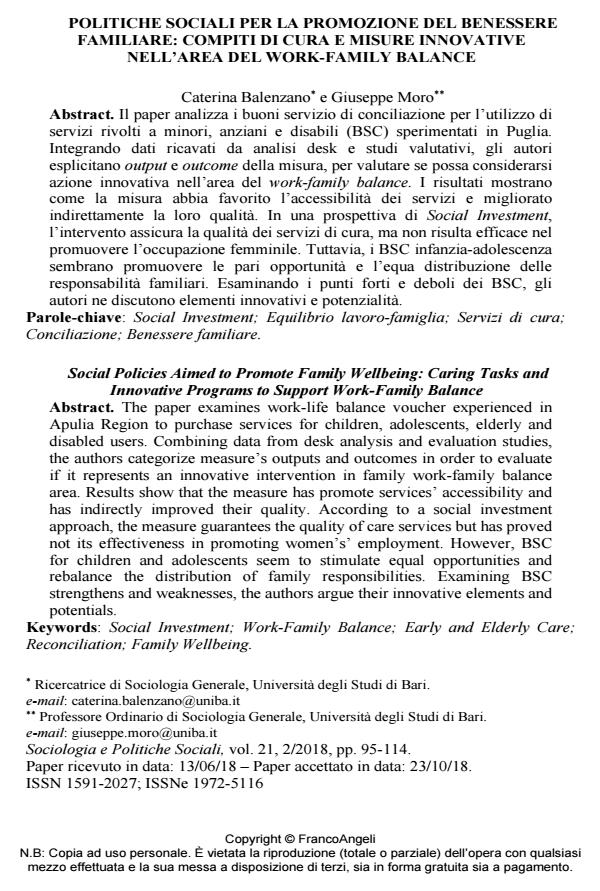Politiche sociali per la promozione del benessere familiare: compiti di cura e misure innovative nell’area del work-family balance
Titolo Rivista SOCIOLOGIA E POLITICHE SOCIALI
Autori/Curatori Caterina Balenzano, Giuseppe Moro
Anno di pubblicazione 2018 Fascicolo 2018/2
Lingua Italiano Numero pagine 20 P. 95-114 Dimensione file 242 KB
DOI 10.3280/SP2018-002005
Il DOI è il codice a barre della proprietà intellettuale: per saperne di più
clicca qui
Qui sotto puoi vedere in anteprima la prima pagina di questo articolo.
Se questo articolo ti interessa, lo puoi acquistare (e scaricare in formato pdf) seguendo le facili indicazioni per acquistare il download credit. Acquista Download Credits per scaricare questo Articolo in formato PDF

FrancoAngeli è membro della Publishers International Linking Association, Inc (PILA), associazione indipendente e non profit per facilitare (attraverso i servizi tecnologici implementati da CrossRef.org) l’accesso degli studiosi ai contenuti digitali nelle pubblicazioni professionali e scientifiche.
The paper examines work-life balance voucher experienced in Apulia Region to purchase services for children, adolescents, elderly and disabled users. Combining data from desk analysis and evaluation studies, the authors categorize measure’s outputs and outcomes in order to evaluate if it represents an innovative intervention in family work-family balance area. Results show that the measure has promote services’ accessibility and has indirectly improved their quality. According to a social investment approach, the measure guarantees the quality of care services but has proved not its effectiveness in promoting women’s’ employment. However, BSC for children and adolescents seem to stimulate equal opportunities and rebalance the distribution of family responsibilities. Examining BSC strengthens and weaknesses, the authors argue their innovative elements and potentials.
Parole chiave:Social Investment; Work-Family Balance; Early and Elderly Care; Reconciliation; Family Wellbeing.
Caterina Balenzano, Giuseppe Moro, Politiche sociali per la promozione del benessere familiare: compiti di cura e misure innovative nell’area del work-family balance in "SOCIOLOGIA E POLITICHE SOCIALI" 2/2018, pp 95-114, DOI: 10.3280/SP2018-002005